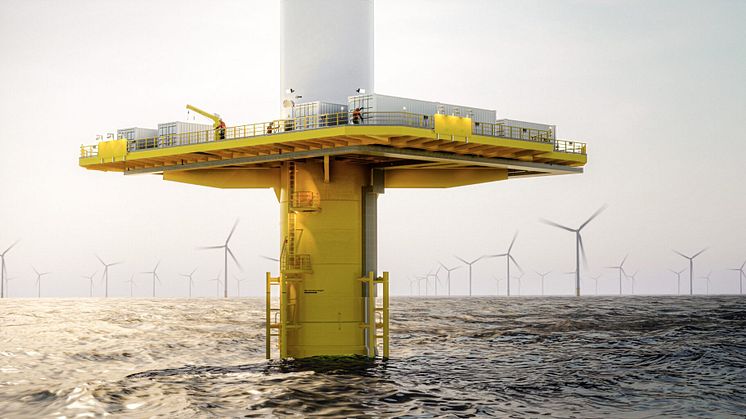
News -
Researchers Want to Enable Hydrogen Production at Sea
At the beginning of 2025, a good 1,600 offshore wind turbines fed around six percent of Germany's annual electricity into the public grid. To bring the energy to land, submarine cables must be laid – a significant cost driver for the installation of the turbines. A more cost-effective solution could be to convert the generated electricity into hydrogen directly on-site and store it.
This is where the work of the Bremerhaven researchers comes into play. Their focus in the "wind2hydrogen" project is the planning and development of a floating hydrogen production plant. Installing such a plant presents several challenges. It must operate autonomously and withstand the harsh environmental conditions at sea. Whether this is even technically feasible at present will become clear over the course of the project. The project is funded by BIS Bremerhavener Gesellschaft für Investitionsförderung und Stadtentwicklung mbH. The project duration is two years.
"The use of offshore hydrogen is a promising concept in the context of the desired transformation of energy systems toward a resilient, sustainable energy supply system. Hydrogen is versatile as an energy storage medium and enables the combination of the advantages of renewable energy sources such as offshore wind farms in the gigawatt range with hydrogen production to create a clean and versatile energy carrier. It is possible that the technical requirements developed in the study go beyond the current market offering and will later have to be addressed by industry based on the final catalog of recommendations," explains Prof. Dr.-Ing. Uwe Werner, project manager at Bremerhaven University of Applied Sciences.

